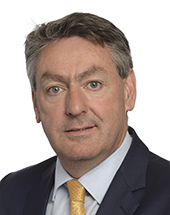
Choisissez la langue de votre document :
- bg - български
- es - español
- cs - čeština
- da - dansk
- de - Deutsch
- et - eesti keel
- el - ελληνικά
- en - English
- fr - français
- ga - Gaeilge
- hr - hrvatski
- it - italiano
- lv - latviešu valoda
- lt - lietuvių kalba
- hu - magyar
- mt - Malti
- nl - Nederlands
- pl - polski
- pt - português
- ro - română
- sk - slovenčina
- sl - slovenščina
- fi - suomi
- sv - svenska
|
| Procédure : 2020/2542(RSP) |
| Cycle relatif au document : O-000013/2020 | ||||||
Textes déposés : O-000013/2020 (B9-0009/2020) | Débats : PV 13/02/2020 - 3CRE 13/02/2020 - 3 | Votes : | Textes adoptés : | |||
| Compte rendu in extenso des débats |
|
|
| Jeudi 13 février 2020 - Strasbourg | Edition révisée |
|
| Dernière mise à jour: 2 juin 2020 | Avis juridique - Politique de confidentialité |







































































